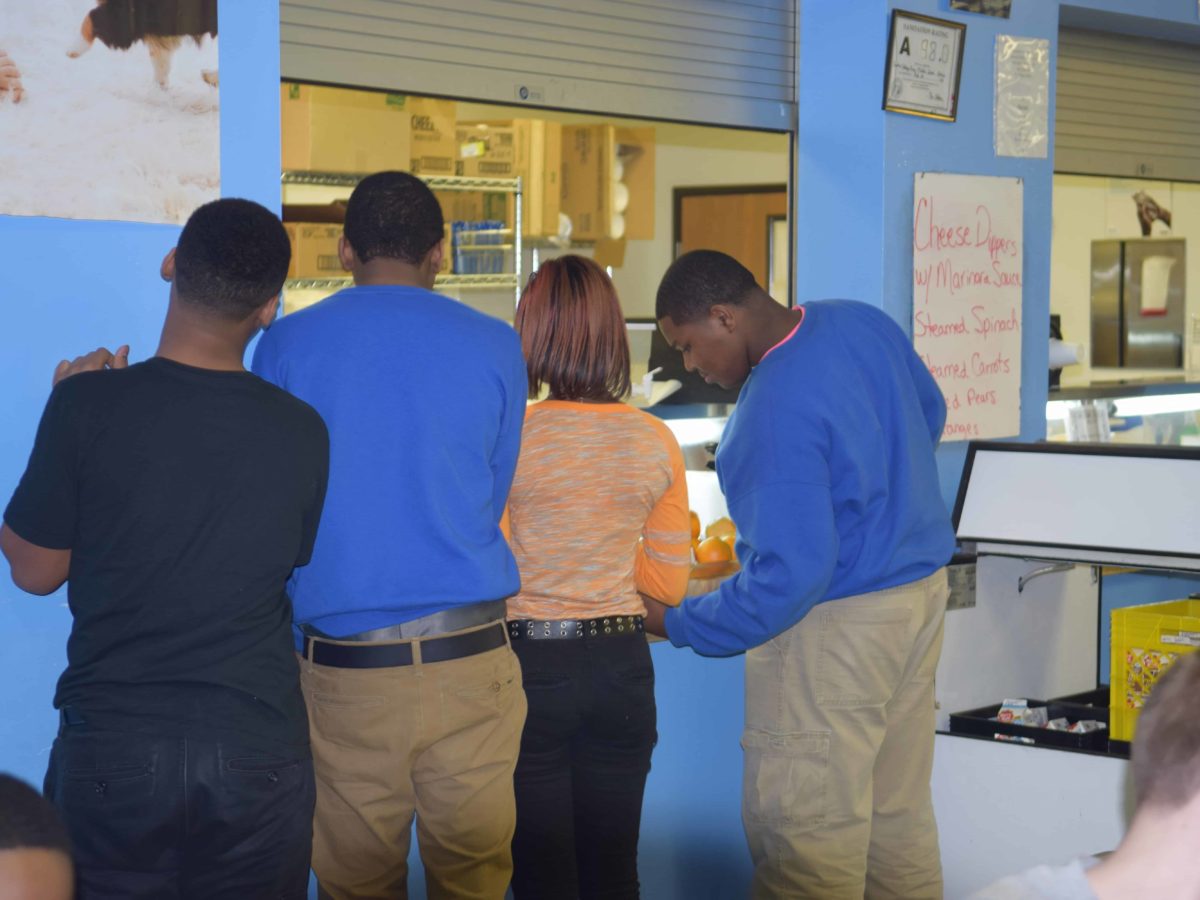

The connection between a child being well fed and being able to learn is beyond dispute. That it is more difficult for a child in poverty to get a good meal is obvious. Public school cafeterias offer an equalizing opportunity with federally-funded meals for children from low-income families. But long, slow lines and stigmatizing identification are two significant barriers. There is a solution that solves both of these issues, but last year the General Assembly took this option off the table.
The solution is similar to smart phones that allow the owner to unlock the phone by placing a finger on the device. The phone does not save a fingerprint – which might create security issues – but rather it collects certain information that is converted into a binary code and is encrypted. In the cafeteria line, a student – rich or poor – places a finger on the device and it recognizes the child and pulls up the child’s account. If the child pays for meals, the cost is deducted. If the child gets meals for free or a reduced price, the information is recorded. It is secure, fast, and accountable.
Corbett Nicholas, the director of food services at North Adams Public Schools, Massachusetts, says, “It will develop efficiencies with getting kids through the line and make the transactions more accurate.”1
Dr. Russell Strange, Superintendent of Penn Cambria School District, Pennsylvania, says, “Biometrics technology has brought much needed anonymity to our foodservice program. Not even the cashiers know which students are ‘free’ or ‘reduced,’ and the students and parents have responded well.”2
By encouraging students to participate, it actually brings more funds to the school. In Penn Cambria, participation in free and reduced lunch increased at the high school as the percent of students identified as low income rose from 28% 43%. Superintendent Russell Strange notes, “The additional reimbursement enables us to provide higher quality meals and more generous servings.”3
According to a news source, “[p]ublic schools such as those in the Penn Cambria and Wilson School Districts in Pennsylvania have adopted this technology to speed operation; simplify payment; limit lunch fraud and bullying; improve National School Lunch Program (NSLP) participation; and to improve reimbursement for programs such as Title I, E-rate, and No Child Left Behind, which use NSLP food service data to gauge poverty.4
Sounds pretty good, doesn’t it? The North Carolina General Assembly apparently disagreed last year and passed a student privacy bill that prohibits this approach without a single dissenting vote. The key part of Senate Bill 815 (SL 2014-15) provides as follows:
N.C.G.S. § 402.5(c)Restricting on Student Data Collection. – The following information about a student or a student’s family shall not be collected in nor reported as part of the student data system:
(1) Biometric information.
(2) Political affiliation.
(3) Religion.
(4) Voting history.
So why did North Carolina choose to go in this direction? Because it followed Florida.
Florida was the first state to outlaw biometric information. A news report at the time noted, “With the signature of Gov. Rick Scott, Hukill’s bill marks the first state law in the nation to ban the collection of students’ biometric data – a decision that is likely to have far-reaching consequences.” It was a controversial measure in Florida, leading to detailed legislation. Florida’s legislation passed on May 12, 2014. North Carolina’s Senate Bill 815 was filed on May 20, 2014.
The Florida Governor’s press release included this bill with a bill limiting the Common Core. While the two would not seem to have anything to do with each other, apparently they do. Arne Duncan, U.S. Secretary of Education, remarked in defending the Common Core:
When the critics can’t persuade you that the Common Core is a curriculum, they make even more outlandish claims. They say that the Common Core calls for federal collection of student data. For the record, it doesn’t, we’re not allowed to, and we won’t. And let’s not even get into the really wacky stuff: mind control, robots, and biometric brain mapping.5
In North Carolina – as well as in Florida – biometric information is part of a larger piece of legislation addressing student privacy. While there are some additional features, the issue of student privacy already is addressed by the federal Family Educational Rights and Privacy Act.
And in North Carolina, it appears that the issue of biometric information – and the implications for cafeteria lines – was not discussed. Further, whereas Florida passed detailed legislation, there is no guidance in North Carolina’s legislation on biometric information. So with little or no debate, North Carolina has eliminated a possible solution. And that’s unfortunate as we need as many ways as possible to put food on the table for all children.
References
State of Florida, Executive Order 13276, September 23, 2013, http://www.flgov.com/wp-content/uploads/orders/2013/13-276-florida-plan.pdf
Florida’s biometric school ban passes into law, May 14, 2014, http://www.cr80news.com/2014/05/14/biometric-ban-in-florida-schools-passes-into-law
Florida Governor Rick Scott signs builds that push back on federal intrusion into our public schools and further ensures local control, May 12, 2014, http://www.flgov.com/2014/05/12/florida-governor-rick-scott-signs-bills-that-push-back-on-federal-intrusion-into-our-public-schools-and-further-ensures-local-control/
Harris School Solutions Partners with identiMetrics for Increased Security and Accuracy, March 5, 2015, available at: http://www.harrisschoolsolutions.com/en/feeds/news/?date=1425531600&article=harris-school-solutions-partners-with-identimetrics-for-increased-security-and-accuracy


